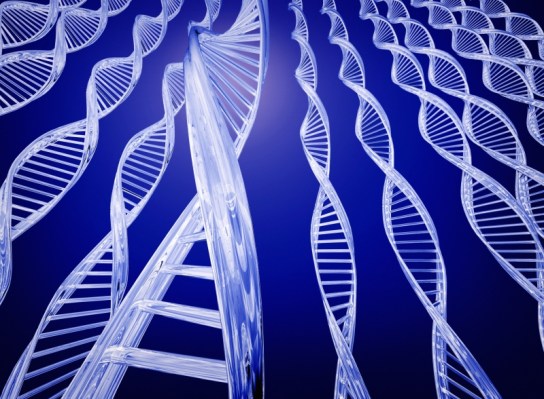Buried in the ongoing PRISM debacle, there was actually some hopeful news out of Washington D.C. for startups this week.
The Supreme Court ruled this week that naturally occurring genes can’t be patented, which should be a boon for the host of emerging gene testing and patenting companies that are coming out of the Valley. Silicon Valley VCs like Founders Fund, Khosla Ventures, Felicis Ventures and SV Angel have been making more bets in the space, on the assumption that biology is becoming a space that can be attacked by software.
In the case, a company called Myriad Genetics had acquired patents on BRCA1 and BRCA2, two genes that are strongly correlated with breast and ovarian cancer. Because of their patents, the cost of testing for those genes had been pushed higher, sometimes beyond the $3,000 range. That would have made it too expensive for many middle- and low-income women to learn if they were at risk for the cancers.
At the same time, other human genes were being scooped up with somewhere north of 20 percent of all human genes being covered by patents, according to the National Society of Genetic Counselors. The leading gene patent holders are unsurprisingly pharmaceutical giants like DuPont and GlaxoSmithKline, that startups would have a financially hard time competing against in courts.
The court ruled that human genes can’t be patented, but that synthetic genes can be protected.
Now that naturally occurring human genes can’t be patented, expect gene testing companies to benefit broadly with lower-cost products across the board. The costs for full human genome sequencing have already fallen to about $8,000 today from $100 million in 2011.
One of the remaining barriers preventing lower-cost testing has been whether consumers would be on the receiving end of high licensing fees to the patent owners of these genes. Patent holders like Myriad could also monopolize the testing market for these genes too, which would have also forced prices higher.
One company that I’ve written about, Counsyl, tests prospective parents for any hereditary diseases they might pass onto their children like Tay-Sachs Disease. They’ve gotten such broad adoption in medical clinics across the U.S. that they’re now testing for approximately 2 percent of all births in the country every year.
While CEO Ramji Srinivasan didn’t want to comment for this story, you could expect that gene testing companies which don’t currently offer tests linked to patented genes to start considering offering them. 23andMe also didn’t immediately respond to requests for comment.
At the same time, the host of emerging synthetic biology startups won’t suffer either since the court ruled that synthetic DNA and cDNA or complementary DNA that is synthesized from messenger RNA, can be patented.
“For me, it never made sense that you can patent genes from nature,” said Omri Amirav-Drory, who is the CEO of Genome Compiler, a company that makes software where you can design your own synthetic DNA. “It does say that synthetic DNA is patentable, which means that if one designs a novel sequence…. it will be patentable. That makes a bit more sense as you’ve made this novel sequence yourself.”
But maybe, synthetic biology patents will become less relevant anyway — just like software patents — as computational genetic design power increases, according to Austen Heinz, who runs Cambrian Genomics. He thinks synthetic gene patents may eventually become outmoded in the same way that software patents seem obsolete because the slow and often bureaucratic patent application process can’t keep up with the pace of change in the industry.
“Think of Windows 95′, 98 or Vista,” he said. “Like in the software business, synthetic biology companies will need to ship an updated improved OS (i.e. genome) every few years to stay competitive.”
